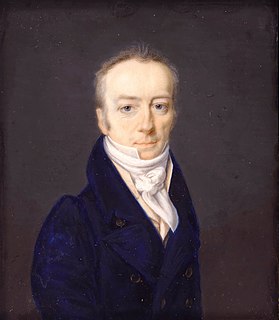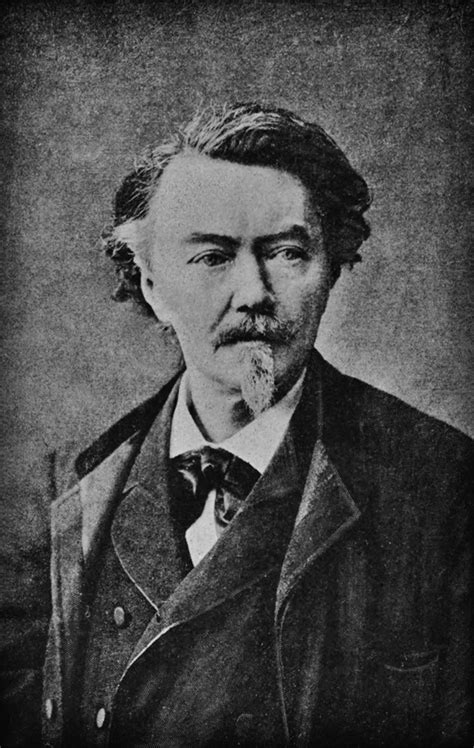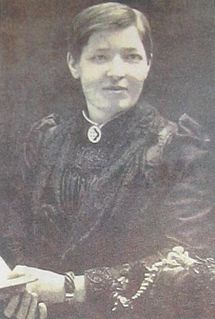A Quote by Jules Verne
So is man's heart. The desire to perform a work which will endure, which will survive him, is the origin of his superiority over all other living creatures here below. It is this which has established his dominion, and this it is which justifies it, over all the world.
Related Quotes
Man with all his noble qualities, with sympathy which feels for the most debased, with benevolence which extends not only to other men but to the humblest living creature, with his god-like intellect which has penetrated into the movements and constitution of the solar system- with all these exalted powers- Man still bears in his bodily frame the indelible stamp of his lowly origin.
You will never have a greater or lesser dominion than that over yourself...the height of a man's success is gauged by his self-mastery; the depth of his failure by his self-abandonment. ...And this law is the expression of eternal justice. He who cannot establish dominion over himself will have no dominion over others.
To be successful, a man must exert an effective influence upon his brothers and upon his associates, and the degree in which he accomplishes this depends on the personality of the man. The incandescence of which he is capable. The flame of fire that burns inside of him. The magnetism which draws the heart of other men to him.
There is a kind of grandeur and respect which the meanest and most insignificant part of mankind endeavor to procure in the little circle of their friends and acquaintance. The poorest mechanic, nay, the man who lives upon common alms, gets him his set of admirers, and delights in that superiority which he enjoys over those who are in some respects beneath him. This ambition, which is natural to the soul of man, might, methinks, receive a very happy turn; and, if it were rightly directed, contribute as much to a person's advantage, as it generally does to his uneasiness and disquiet.
The very beginning of Genesis tells us that God created man in order to give him dominion over fish and fowl and all creatures. Of course, Genesis was written by a man, not a horse. There is no certainty that God actually did grant man dominion over other creatures. What seems more likely, in fact, is that man invented God to sanctify the dominion that he usurped for himself over the cow and the horse.
Well, every man has a religion; has something in heaven or earth which he will give up everything else for - something which absorbs him - which may be regarded by others as being useless - yet it is his dream, it is his lodestar, it is his master. That, whatever it is, seized upon me, made me its servant, slave - induced me to set aside the other ambitions a trail of glory in the heavens, which I followed, followed with a full heart. ...When once I am convinced, I never let go.
If a man is offered a fact which goes against his instincts, he will scrutinize it closely, and unless the evidence is overwhelming, he will refuse to believe it. If, on the other hand, he is offered something which affords a reason for acting in accordance to his instincts, he will accept it even on the slightest evidence. The origin of myths is explained in this way.
The pitch to which he was aroused was tremendous. All the fighting blood of his breed was up in him and surging through him. This was living., though he did not know it. He was realizing his own meaning in the world; he was doing that for which he was made.... He was justifying his existence, than which life can do no greater; for life achieves its summit when it does to the uttermost that which it was equipped to do.
Man is more than his environment. It is from the innate quality of the Spirit in him, his inner storehouse, that he draws those ideas, his intuitions, which unify his perceptions of the external world instantaneously with a value which is qualitative and not quantitative, and which he embodies in the works of his culture - those achievements which belong not only to one particular time but to all times, and mark the path of his upward progress.
The individual is defined only by his relationship to the world and to other individuals; he exists only by transcending himself, and his freedom can be achieved only through the freedom of others. He justifies his existence by a movement which, like freedom, springs from his heart but which leads outside of himself.
In Christ, we become new creatures. His life becomes ours. Take that word 'life' and turn it over and over and press it and try to measure it, and see what it will yield. Eternal life is a magnificent idea which comprises everything the heart can yearn after. Do not your hearts yearn for this life, this blessed and eternal life, which the Son of God so freely offers?







































